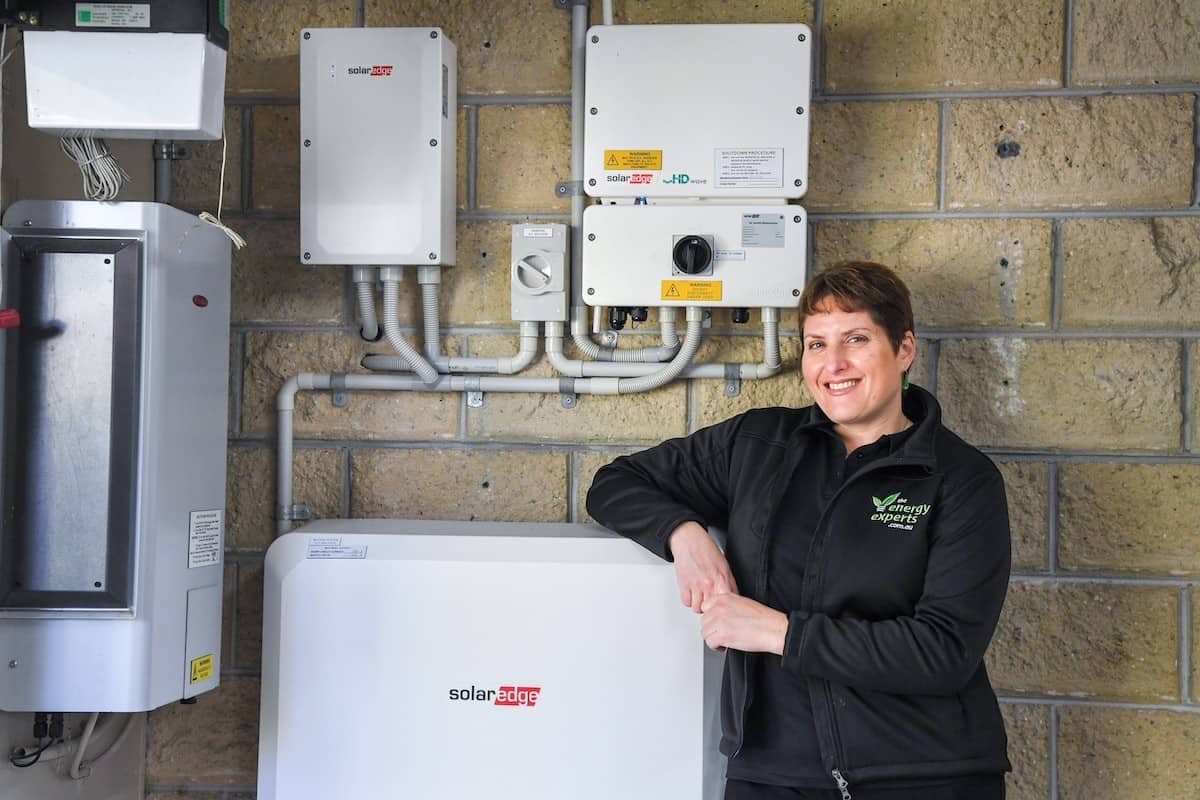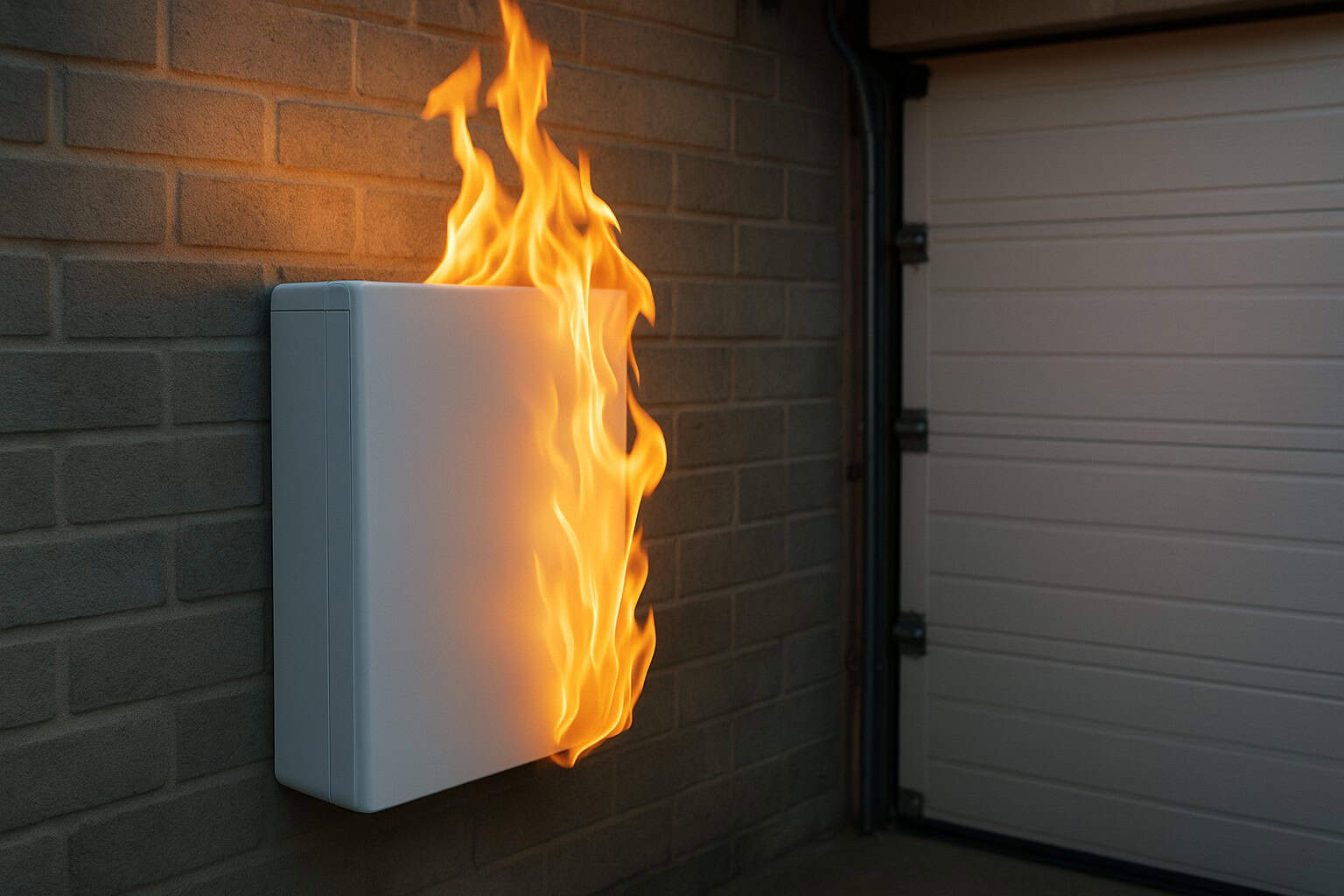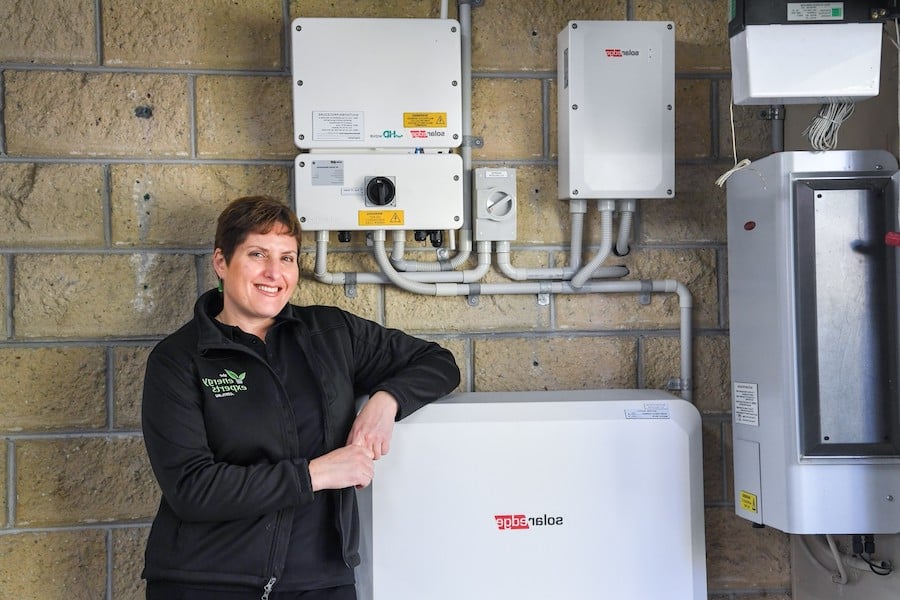
Energy independence
Australians are paying between 9% – 20% more for electricity than they were the year prior (some households have reported electricity tariff increases of up to 45% from 1 July 2023).
Less reliance on the national grid can save the average consumer thousands of dollars a year and relieve cost of living pressures.
As a result of installing a battery, Carolyn Lee, co-director of The Energy Experts, draws an average of 0.5kWh/day of electricity from the grid. This is the equivalent of charging a laptop or having a few LED lights on.
“Before installing a battery in our home, we had all this surplus solar energy being exported to the grid each day, and then bought whatever power we needed between late afternoon and early morning. Now, with solar and storage, we’re powered by the sun 24/7.”
Sustainable living
More people are attempting to lower their carbon footprint, as evident in the growing number of Australians installing rooftop solar panels. Adding battery storage allows those of us who are committed to sustainable living to become fully self-sufficient, meaning none of our power is derived from fossil fuels.
Home batteries allow you to store excess energy generated by the sun for use when the sun’s not shining. Generating and storing your own energy can help lower national consumption, enabling Australia to achieve its net zero emissions target by 2050.
Grid resilience
Extreme weather events can damage the grid’s infrastructure. A noticeable increase in the frequency and severity of storms and natural disasters globally has sparked concerns over the grid’s vulnerability.
Residential solar and battery systems are an excellent backup solution to keep your home running when grid-generated power is unavailable. If damage to the grid is substantial, restoring power could take days or even weeks.
A home battery system adds an extra layer of energy security, by allowing you to continue to access your free solar energy (which you can’t do without a battery when the grid is down). The peace of mind this additional energy security offers can outweigh the need for a quick ROI.
Changing perspectives on the value of renewable energy
While the immediate return on investment of home batteries may not be significant many are adopting a long-term perspective. They see the value in contributing to a sustainable future and want to benefit from energy independence.
As Australia transitions toward a more sustainable future, home batteries are very likely to play an increasingly important role in how we power our homes.















